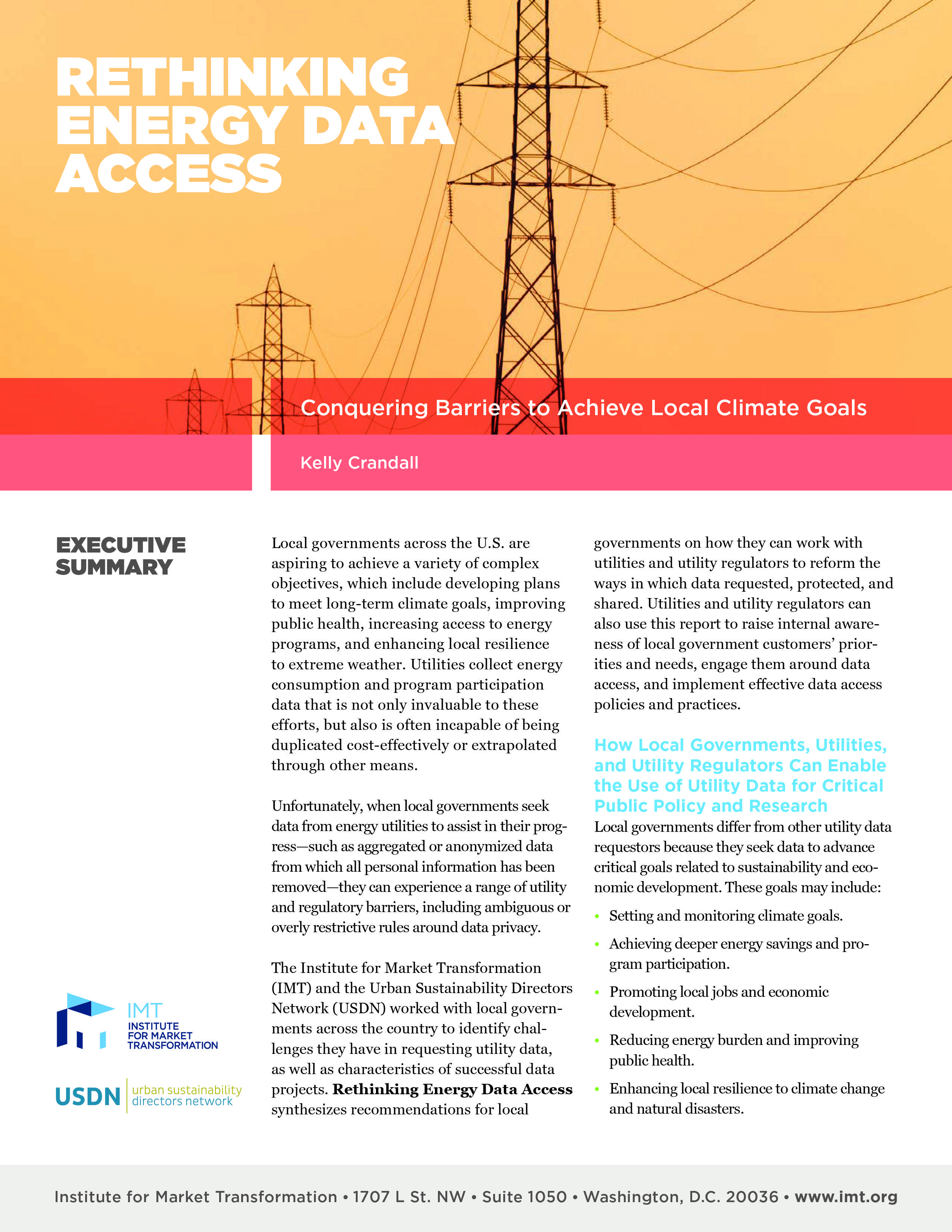Local governments across the U.S. are leading the charge on a variety of complex objectives, which include developing plans to meet long-term climate goals, improving public health, increasing access to energy-saving programs, and enhancing local resilience to extreme weather. Utilities play an invaluable role in these efforts by collecting and sharing energy consumption and program participation data with local government sustainability staff. Unfortunately, when local governments seek data from energy utilities to assist in their progress, they often run into a range of utility and regulatory barriers.
This executive summary of Rethinking Energy Data Access: Conquering Barriers to Achieve Local Climate Goals provides an easy-to-digest summary of the report’s top findings and recommendations for local government sustainability staff, utilities, and utility regulators on how to reform the ways in which data is requested, protected, and shared in order to advance critical goals for each party.
The Institute for Market Transformation (IMT) and the Urban Sustainability Directors Network (USDN) worked with local governments across the country to identify the biggest challenges they have in requesting utility data, as well as characteristics of successful data projects. Utilities and utility regulators can use the report to raise internal awareness of local government customers’ priorities and needs, engage them around data access, and implement effective data access policies and practices.
The report’s Appendix includes five use cases from which local governments can pull lessons learned to communicate what kinds of data they are seeking from their utilities and why. Click on the hyperlinks below to download the use cases individually.
